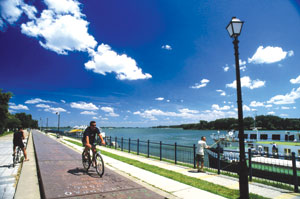| |
|
|
| |
 |
Bulgaria is positioned at the crossroads of Europe and Asia in the south-east of the Balkan Peninsula; framed by Romania in the North, Greece and Turkey to the South; whilst the Black Sea encompasses the East and Serbia and Macedonia cover the western frontier. It is divided into 28 provinces each named after its capital.
The population currently stands at almost 8 million with the capital and largest city being Sofia. Bulgaria is a member of the European Union as of 1 January 2007 and is preparing to join the Euro zone.
|
The prevailing climate is continental with hot summer and cold winter making it a popular tourist destination. The Black Sea beach resorts are a mecca in the summer months with excellent skiing in the higher slopes during the winter.
The country has a developed domestic and international communications network; three international airports and two commercial sea ports service the country.
The official language is Bulgarian and uses the Cyrillic alphabet. Literacy rate in Bulgaria is very high and the country boasts a strong education system.
Bulgaria is a vibrant cultural center rich with centuries of historical heritage, crafts, music, dance, literature and artistic traditions, which can be traced back to the Stone Age when the Thracians first settled in this region, evolving through tumultuous times and periods to where it stands today as a parliamentary Republic and Legislature.
Tourism plays an enormous role in today’s economy of Bulgaria; with the country being voted the cheapest tourist destination in Europe 2006 and tourism responsible for 14% of the GDP of that same year. The choices of attractions are limitless throughout Bulgaria’s diverse landscape and regions. |
|
| |
|
|
| |
| Other Pages within this section |
| |
|
|
|
|